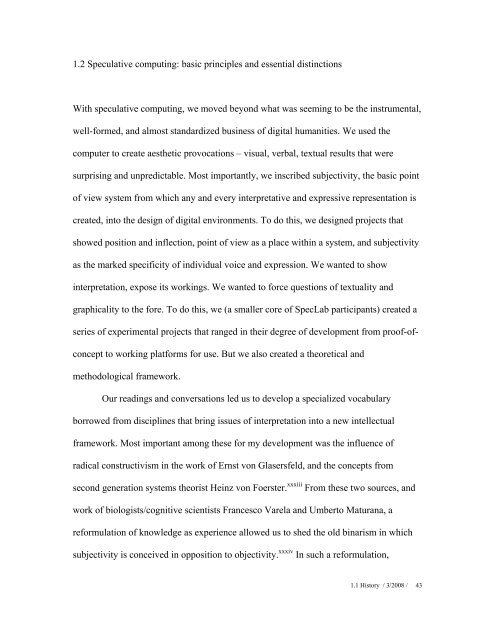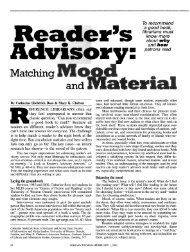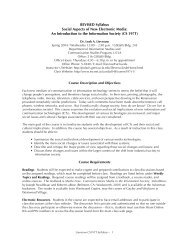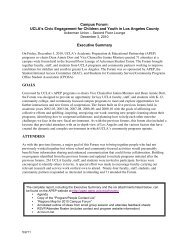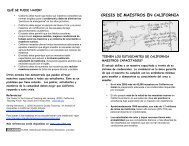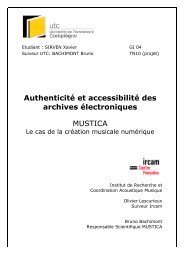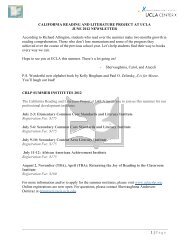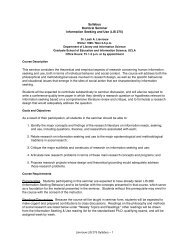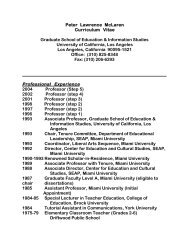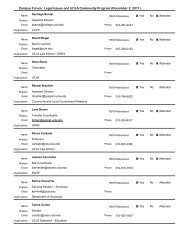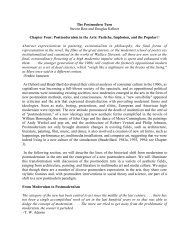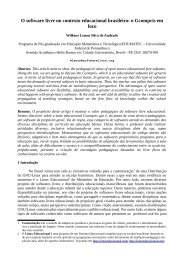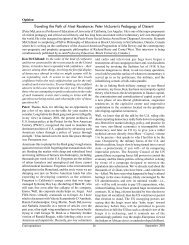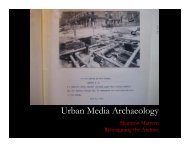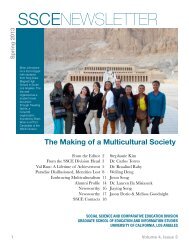1.1 From Digital Humanities to Speculative Computing - UCLA ...
1.1 From Digital Humanities to Speculative Computing - UCLA ...
1.1 From Digital Humanities to Speculative Computing - UCLA ...
Create successful ePaper yourself
Turn your PDF publications into a flip-book with our unique Google optimized e-Paper software.
1.2 <strong>Speculative</strong> computing: basic principles and essential distinctions<br />
With speculative computing, we moved beyond what was seeming <strong>to</strong> be the instrumental,<br />
well-formed, and almost standardized business of digital humanities. We used the<br />
computer <strong>to</strong> create aesthetic provocations – visual, verbal, textual results that were<br />
surprising and unpredictable. Most importantly, we inscribed subjectivity, the basic point<br />
of view system from which any and every interpretative and expressive representation is<br />
created, in<strong>to</strong> the design of digital environments. To do this, we designed projects that<br />
showed position and inflection, point of view as a place within a system, and subjectivity<br />
as the marked specificity of individual voice and expression. We wanted <strong>to</strong> show<br />
interpretation, expose its workings. We wanted <strong>to</strong> force questions of textuality and<br />
graphicality <strong>to</strong> the fore. To do this, we (a smaller core of SpecLab participants) created a<br />
series of experimental projects that ranged in their degree of development from proof-of-<br />
concept <strong>to</strong> working platforms for use. But we also created a theoretical and<br />
methodological framework.<br />
Our readings and conversations led us <strong>to</strong> develop a specialized vocabulary<br />
borrowed from disciplines that bring issues of interpretation in<strong>to</strong> a new intellectual<br />
framework. Most important among these for my development was the influence of<br />
radical constructivism in the work of Ernst von Glasersfeld, and the concepts from<br />
second generation systems theorist Heinz von Foerster. xxxiii <strong>From</strong> these two sources, and<br />
work of biologists/cognitive scientists Francesco Varela and Umber<strong>to</strong> Maturana, a<br />
reformulation of knowledge as experience allowed us <strong>to</strong> shed the old binarism in which<br />
subjectivity is conceived in opposition <strong>to</strong> objectivity. xxxiv In such a reformulation,<br />
<strong>1.1</strong> His<strong>to</strong>ry / 3/2008 /<br />
43


